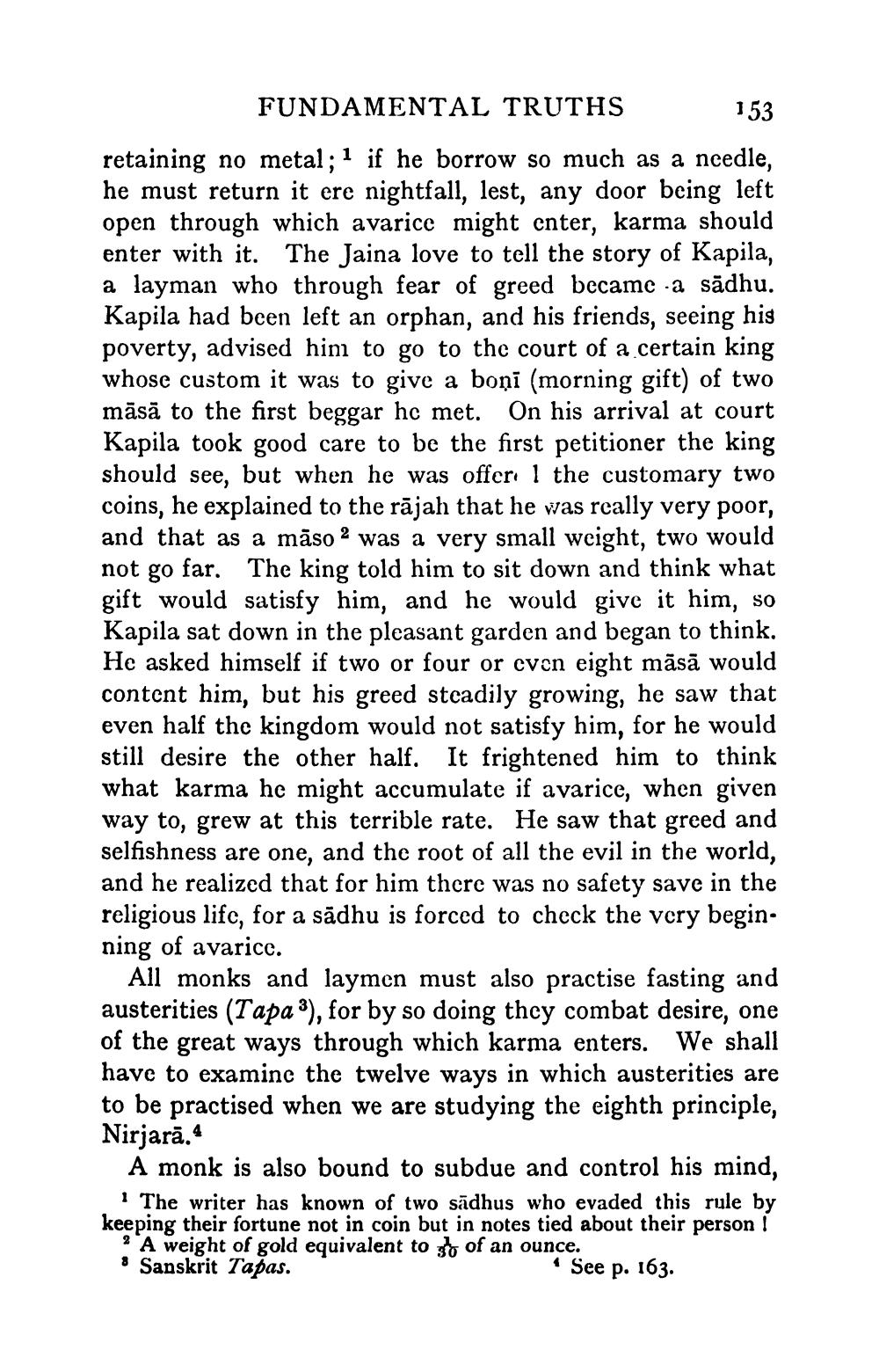________________
FUNDAMENTAL TRUTHS
153
retaining no metal; 1 if he borrow so much as a needle, he must return it ere nightfall, lest, any door being left open through which avarice might enter, karma should enter with it. The Jaina love to tell the story of Kapila, a layman who through fear of greed became a sadhu. Kapila had been left an orphan, and his friends, seeing his poverty, advised him to go to the court of a certain king whose custom it was to give a boņi (morning gift) of two māsā to the first beggar he met. On his arrival at court Kapila took good care to be the first petitioner the king should see, but when he was offer 1 the customary two coins, he explained to the rajah that he was really very poor, and that as a maso 2 was a very small weight, two would not go far. The king told him to sit down and think what gift would satisfy him, and he would give it him, so Kapila sat down in the pleasant garden and began to think. He asked himself if two or four or even eight māsā would content him, but his greed steadily growing, he saw that even half the kingdom would not satisfy him, for he would still desire the other half. It frightened him to think what karma he might accumulate if avarice, when given way to, grew at this terrible rate. He saw that greed and selfishness are one, and the root of all the evil in the world, and he realized that for him there was no safety save in the religious life, for a sadhu is forced to check the very begin. ning of avarice.
All monks and laymen must also practise fasting and austerities (Tapa 3), for by so doing they combat desire, one of the great ways through which karma enters. We shall have to examine the twelve ways in which austerities are to be practised when we are studying the eighth principle, Nirjarā.1
A monk is also bound to subdue and control his mind, The writer has known of two sadhus who evaded this rule by keeping their fortune not in coin but in notes tied about their person! 2 A weight of gold equivalent to Sanskrit Tapas.
of an ounce.
See p. 163.




